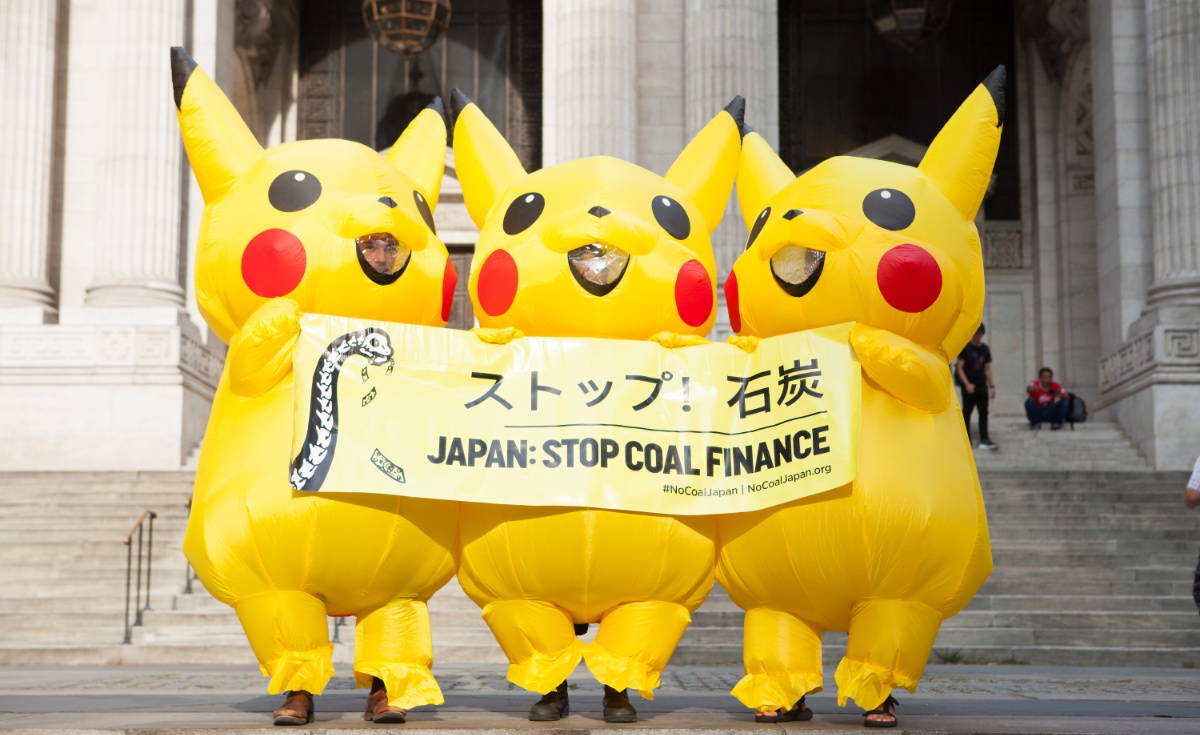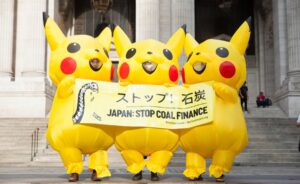[ad_1]


The Japanese authorities, one of many world’s largest financiers of fossil fuels, is at present organizing “GX Week”., To advertise “Inexperienced Transformation” in Tokyo.
The occasion goals to speed up the “transition” from fossil fuels to fight local weather change.
Ministers and world leaders have been invited to Japan to help the “Inexperienced Transformation” to be able to “shift the financial, social and industrial buildings which have been depending on fossil fuels because the Industrial Revolution to buildings powered by clear vitality and promote financial development.” and improvement by means of emissions mitigation.”
On the very floor, internet hosting the convention could possibly be seen as a constructive transfer by the Japanese authorities, which has lengthy been criticized for its stance on creating fossil gasoline tasks at dwelling and overseas.
Between 2018 and 2020, Japan offered a minimum of $10.9 billion per 12 months for oil, gasoline and coal tasks. This funding of fossil fuels by means of public monetary establishments overseas was eight occasions better than Japan’s worldwide help for renewable vitality, which averaged $1.3 billion per 12 months. From 2012 to 2020, Japan was the most important lender to fossil fuels.
Nonetheless, the proposals being offered by organizers at Japan’s Ministry of Economic system, Commerce and Trade are a bunch of false options that, as a substitute of fixing local weather change, will proceed and exacerbate our reliance on fossil fuels. These embrace fossil-based blue hydrogen, ammonia in thermal energy vegetation, carbon seize and storage (CCS), gasoline and LNG.
It is a downside not just for Japan however for the broader area as Japan’s affect and fossil gasoline finance extends far past its borders. In Indonesia, for instance, Japan is supporting hydrogen, ammonia fuels and CCS/CCUS to attain a “real looking vitality transition”, based on a memorandum of cooperation signed by each governments earlier this 12 months.
Fanny Trai Jamboree of WALHI (The Indonesian Discussion board for the Surroundings) says, “The actual agenda behind that is to extend company management over the vitality market. Japanese investments that also encourage the usage of fossil fuels, corresponding to the usage of ammonia on the Suralaya energy plant in Banten, are one other instance of twenty first century colonialism underneath the guise of an vitality transition. Indonesia is at present going through an oversupply of electrical energy which affords an amazing alternative to cease utilizing fossil fuels and improve renewable energy-based electrical energy era.
In Bangladesh, the Japan Worldwide Cooperation Company is at present offering technical help to the Bangladesh authorities to begin large-scale thermal and gas-fired energy era utilizing the blended combustion of hydrogen and ammonia.
“The Japanese authorities is pressuring Asian governments to broaden gasoline, thereby delaying the phase-out of fossil fuels in Asia,” says Hiroki Osada of FOE Japan. “We’re additionally seeing that Japanese-funded gasoline tasks within the Philippines are destroying the wealthy marine ecosystems on which native fishing communities rely for his or her livelihoods.”
Osada provides: “Consequently, many fishermen are struggling to make a residing. The Japanese authorities should take heed to the voices of communities in Asia who oppose Japan’s help for gasoline enlargement and take motion primarily based on the wants of native communities.
To coincide with the convention, a community of civil society teams from throughout the area and the International South have come collectively to assist Japan cease funding false options and delay the correct transition to scrub vitality. Civil society teams in Japan, India, Indonesia, Bangladesh and the Philippines took motion on the opening day of GX Week to protest the Japanese authorities’s implementation of the “false resolution”.
They’re calling on the Japanese authorities “for Asia and different nations to cease superficial measures in opposition to local weather change and as a substitute present help that’s sustainable and primarily based on the wants of communities, in keeping with the targets of the Paris Settlement.”
“Annually we transfer nearer to local weather collapse, but the Japanese authorities and Japanese companies are proudly displaying false options to the local weather disaster,” says Lidi Knappil of the Asian Folks’s Motion on Debt and Improvement. “These aren’t the “options” the world wants. In truth, these so-called options delay fossil-fuel use and in some circumstances even improve emissions. There may be an try and delay what the world urgently wants.”
[ad_2]
Supply hyperlink